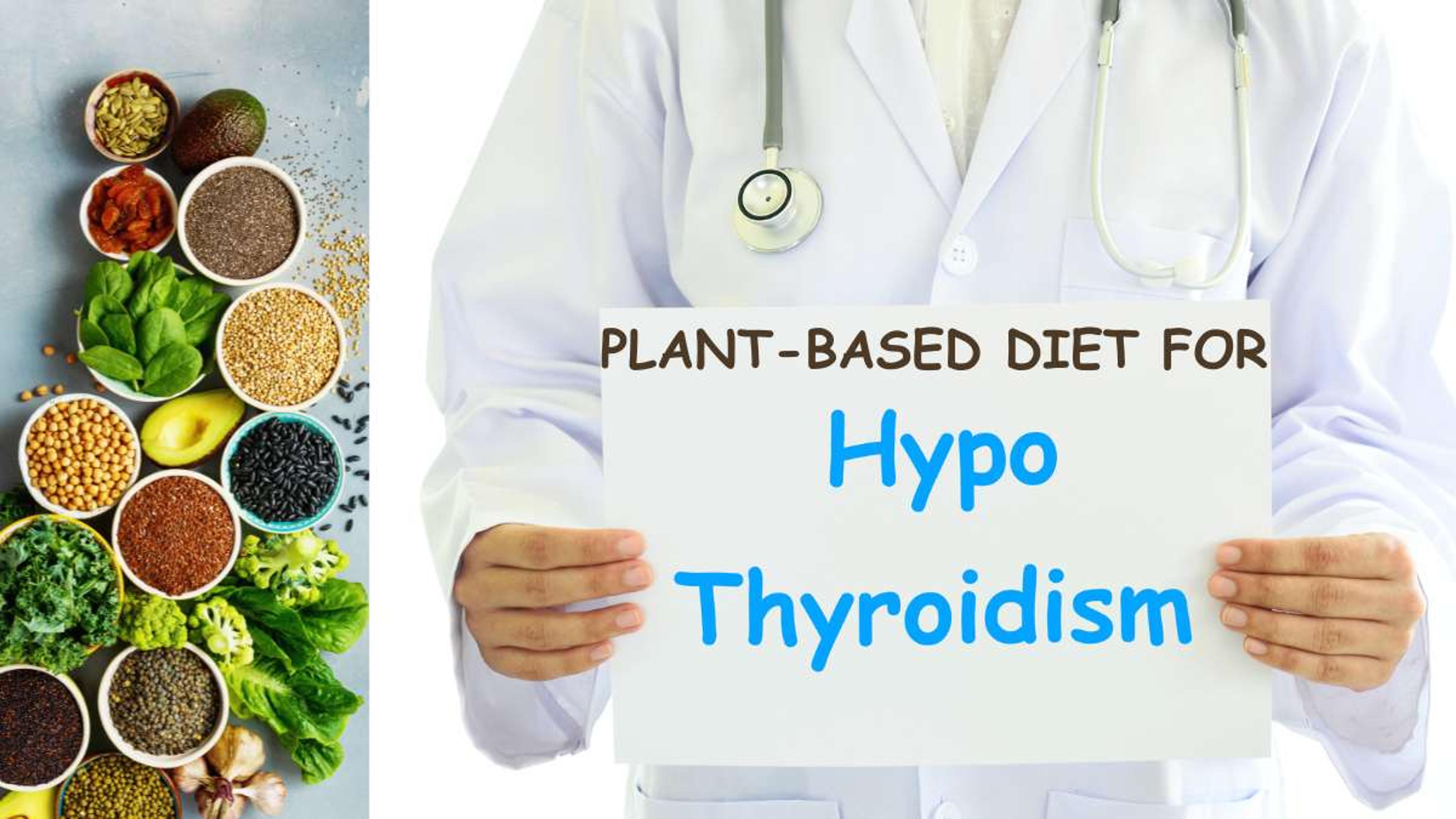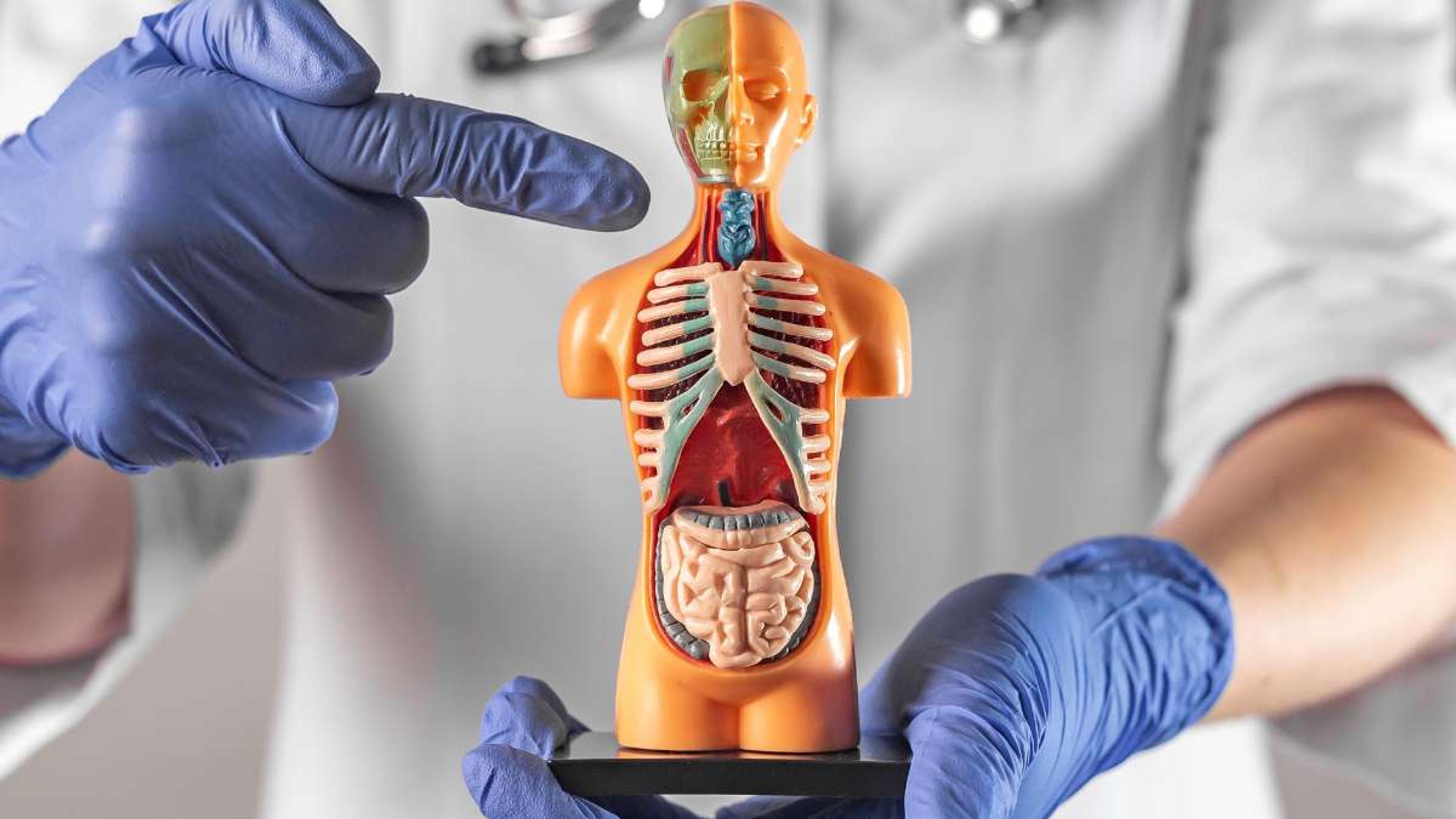Vegan Diet for Hypothyroidism: A Complete Guide

- Key Takeaways
- Understanding the Impact of Diet on Hypothyroidism
- Potential Benefits of a Vegan Diet for Hypothyroidism
- Guidelines for Following a Vegan Diet for Hypothyroidism
- Conclusion
- FAQs
Do you have hypothyroidism and are curious about adopting a vegan lifestyle? Studies suggest that with careful planning, a vegan diet can support thyroid health. This blog post will provide helpful tips and information regarding the potential benefits of following a plant-based diet when dealing with this condition.
Read on to discover how to make a smooth dietary transition for better thyroid well-being!
Key Takeaways
- A vegan diet rich in nutrients like iodine, selenium, and zinc can support thyroid health and alleviate symptoms of hypothyroidism.
- Plant-based foods such as legumes, cruciferous vegetables, soy products, whole grains, fruits, nuts, and iodized salt are excellent sources of essential nutrients for individuals with hypothyroidism.
- Following a vegan diet may reduce inflammation and autoimmune responses associated with hypothyroidism while promoting overall health and weight management.
Understanding the Impact of Diet on Hypothyroidism
A well-balanced diet plays a crucial role in managing hypothyroidism, as the right nutrients are essential for healthy thyroid function and to help alleviate symptoms. Additionally, certain foods have healing properties that can further support thyroid health.

The importance of nutrients for thyroid health
A healthy thyroid can't function without nutrients like iodine, selenium, and zinc. The thyroid gland uses these to produce thyroid hormone, regulating metabolism and energy levels in the body. Understanding the importance of these nutrients in maintaining thyroid health is crucial for preventing and managing thyroid disorders.
Lack of these nutrients can lead to hypothyroidism symptoms worsening. Iron and Vitamin B12 are also critical for producing necessary hormones. Specific vitamins aid in reducing inflammation, which is often seen amongst individuals dealing with autoimmune versions of this condition such as Hashimoto's disease.
Therefore a nutrient-rich diet plays an enormous part in managing a healthy thyroid system.
The role of diet in managing symptoms
Managing hypothyroidism symptoms can become significantly less challenging with the right diet. The most common cause of hypothyroidism is an autoimmune disorder called Hashimoto's thyroiditis. The food you consume plays an important role in how your body regulates thyroid hormone production, influencing your metabolism and overall energy levels.
Eating a balanced meal rich in essential nutrients such as iodine, selenium, vitamin B12, and iron, including lacto-ovo options, can help maintain optimal thyroid function and prevent iodine deficiency. Additionally, consuming foods that contain natural antibodies can also support a healthy immune system.
Highly processed foods or those high in sugar may lead to inflammation which could worsen hypothyroidism symptoms. On the contrary, a plant-based diet abundant with fruits, vegetables, legumes is known to be anti-inflammatory.
Such vegan diets are also high in fiber and nutrition, which aids in managing constipation - a common symptom of this condition. By monitoring these factors within your daily meals intake pattern not only supports thyroid health but also promotes overall wellbeing by reducing the risk of obesity and weight gain often linked to the risk of hypothyroidism.
Potential Benefits of a Vegan Diet for Hypothyroidism
A vegan diet for hypothyroidism can offer potential benefits such as providing essential nutrients through plant-based foods, potentially reducing inflammation and autoimmune responses, and promoting overall health and weight management.

Plant-based foods rich in essential nutrients
Incorporating plant-based foods in your diet can significantly boost the intake of essential nutrients, including calcium. Here are some examples:
- Legumes like lentils, chickpeas, and peas are terrific sources of protein and iron.
- Cruciferous vegetables such as broccoli and kale provide ample amounts of Vitamin C and other powerful antioxidants, while being low-calorie options.
- Soy products, including tofu or tempeh, are packed with essential amino acids, fiber, and a variety of vitamins and minerals.
- Whole grains like brown rice and quinoa supply important amounts of B vitamins as well as magnesium and fiber.
- A variety of fruits offer an array of vitamins, antioxidants, fiber, and hydration while adding natural sweetness to meals.
- Nuts such as walnuts or flaxseeds include omega-3 fatty acids which are beneficial for heart health.
- Iodized salt is an easy way to ensure iodine intake,
- Plant-based supplements may be necessary to fill nutritional gaps such as vitamin B12 deficiency common among vegans.
Potential reduction in inflammation and autoimmune response
Vegan diets have the potential to reduce inflammation and autoimmune response in individuals with hypothyroidism and other autoimmune conditions, including subclinical hypothyroidism. Studies have shown that plant-based eating can suppress pro-inflammatory cells, leading to a decrease in inflammation throughout the body.
By eliminating animal products and focusing on nutrient-rich plant foods, such as fruits, vegetables, whole grains, legumes, and nuts, individuals may experience a reduction in symptoms associated with autoimmune thyroid conditions.
This is especially beneficial for those who are prone to inflammation or have other autoimmune disorders alongside their hypothyroidism.
Overall health and weight management benefits
A vegan diet offers numerous overall health and weight management benefits that can be particularly beneficial for individuals with hypothyroidism. One of the key advantages is that a vegan diet tends to be lower in calories and higher in fiber, which can aid in weight loss and help maintain a healthy body weight.
Research has shown that vegans tend to have lower body weights compared to non-vegans, even after controlling for other factors such as physical activity levels. Additionally, following a vegan diet may also lead to improvements in kidney function by reducing the risk of kidney disease and related complications.
These overall health benefits make adopting a vegan lifestyle an attractive option for individuals looking to manage their weight while also supporting their thyroid health.
Another important benefit of a vegan diet is its potential role in reducing inflammation. Chronic inflammation often accompanies hypothyroidism, leading to increased symptoms and greater severity of the condition.
By focusing on plant-based foods rich in antioxidants and anti-inflammatory nutrients, individuals following a vegan diet may experience reduced inflammation levels and improved overall well-being.
Guidelines for Following a Vegan Diet for Hypothyroidism
Include iodine-rich foods like seaweed, incorporate sources of selenium such as brazil nuts, ensure sufficient intake of vitamin B12 and iron through supplementation or fortified foods, add zinc and vitamin D sources to the diet, balance cruciferous vegetables with cooking techniques such as steaming or fermenting, pay attention to lifestyle factors like stress management and sleep, and consider working with a registered dietitian for personalized guidance.

Focus on iodine-rich foods
Iodine is essential for proper thyroid function, so it's important for vegans with hypothyroidism to focus on incorporating iodine-rich foods into their diet. Dairy products, seaweed, certain fish like cod and tuna, beans such as navy beans and chickpeas, and fruits like strawberries are all good sources of iodine.
While it's true that vegans may have lower iodine concentrations in their diets compared to non-vegans who consume dairy and fish, this hasn't been directly linked to thyroid problems.
However, it's still crucial for vegans following a low iodine diet to ensure they obtain sufficient iodine from other sources. One reliable way for vegans to do this is by using iodized salt in cooking or seasoning their food.
Incorporate selenium sources
Selenium is an essential nutrient for individuals following a vegan diet for hypothyroidism. While selenium-rich food sources are commonly found in breads, grains, meat, poultry, fish, and eggs, vegans can also get their selenium fix from plant-based options.
Brazil nuts, chia seeds, mushrooms, and tofu are all excellent sources of selenium for those on a vegan diet. However, if it's difficult to meet the recommended intake through food alone, considering selenium supplementation may be necessary.
Ensure sufficient intake of vitamin B12 and iron
Vitamin B12 and iron are essential nutrients that vegans should pay close attention to in their diet. Vitamin B12 is primarily found in animal products, so it can be challenging for vegans to get enough of this vitamin.
A deficiency in vitamin B12 can lead to fatigue, weakness, and nerve problems. Iron is important for healthy red blood cells and energy production. Since vegan diets exclude meat, which is a rich source of iron, it's crucial for vegans to find alternative sources such as legumes, fortified cereals, and leafy greens.
Supplementation may also be necessary to maintain proper levels of these nutrients in a vegan diet.
Including sources of zinc and vitamin D
Zinc and vitamin D are crucial nutrients for individuals with hypothyroidism, as they play a significant role in thyroid hormone production and overall thyroid function. It's important to ensure an adequate intake of these nutrients in a vegan diet.
Good sources of zinc include legumes, nuts, seeds, whole grains, and tofu. For vitamin D, fortified plant-based milk, mushrooms exposed to sunlight, and supplementation can help meet the recommended levels.
By incorporating these sources of zinc and vitamin D into a vegan diet for hypothyroidism, individuals can support their thyroid health more effectively.
Balancing cruciferous vegetables
Cruciferous vegetables like broccoli, cauliflower, Brussels sprouts, and kale can have both positive and negative effects on individuals with hypothyroidism. On one hand, these vegetables are rich in essential nutrients that support overall health.
However, they also contain compounds called goitrogens that can interfere with the thyroid's ability to use iodine effectively. Balancing cruciferous vegetable intake is important for individuals following a vegan diet for hypothyroidism.
Including smaller portions of cooked cruciferous vegetables alongside other nutrient-rich foods can help ensure a well-rounded diet while minimizing potential negative effects on thyroid function.
Managing lifestyle factors
To effectively manage hypothyroidism, it is important to make certain changes in your lifestyle. Here are some tips for managing lifestyle factors associated with hypothyroidism:
- Get enough sleep: Aim for at least 7-8 hours of quality sleep each night to support overall thyroid and metabolic health.
- Reduce stress levels: Chronic stress can negatively impact thyroid function. Incorporate stress management techniques such as meditation, deep breathing exercises, or yoga into your daily routine.
- Exercise regularly: Engaging in regular physical activity can help improve thyroid function and boost metabolism. Aim for at least 30 minutes of moderate-intensity exercise most days of the week.
- Manage weight: Maintaining a healthy weight can help optimize thyroid hormone production and reduce symptoms of hypothyroidism. Focus on consuming a balanced diet and engaging in regular exercise to achieve and maintain a healthy weight.
- Limit alcohol consumption: Excessive alcohol intake can impair thyroid function and interfere with the effectiveness of thyroid medication. It is best to limit or avoid alcohol if you have hypothyroidism.
- Avoid smoking: Smoking may increase the risk of developing autoimmune thyroid diseases, such as Hashimoto's thyroiditis. Quitting smoking can have numerous health benefits, including improved thyroid function.
- Support gut health: There is evidence to suggest that gut health plays a role in thyroid function. Consume a diet rich in fiber, fermented foods, and probiotics to promote a healthy gut microbiome.
Cooking and preparation tips
To follow a vegan diet for hypothyroidism successfully, consider the following cooking and preparation tips:
- Experiment with different cooking methods to bring out the flavors of plant-based ingredients.
- Incorporate herbs and spices to add depth and variety to your meals.
- Opt for whole foods whenever possible to ensure you are getting all the necessary nutrients.
- Prepare meals in advance to save time and ensure you have nutritious options readily available.
- Try new recipes that focus on plant-based proteins, such as lentils, beans, and tofu..
- Make use of natural sweeteners like maple syrup or dates when baking vegan treats.
- Be mindful of your iodine intake by using iodized salt or incorporating seaweed into your diet.
- Consider meal planning to ensure you are meeting all your nutritional needs throughout the week.
Conclusion
In conclusion, adopting a vegan diet can have potential benefits for individuals with hypothyroidism. By focusing on nutrient-dense plant-based foods and ensuring adequate intake of iodine, selenium, vitamin B12, iron, zinc, and vitamin D, individuals can support their thyroid health.
It is important to work with healthcare professionals to ensure a well-balanced vegan diet that meets nutritional needs while managing symptoms of hypothyroidism effectively.
FAQs
1. Can a vegan diet be beneficial for individuals with hypothyroidism?
Yes, a vegan diet can be beneficial for individuals with hypothyroidism. By focusing on nutrient-dense plant-based foods and ensuring adequate intake of key nutrients, individuals can support their thyroid health. It is important to work with healthcare professionals to ensure a well-balanced vegan diet that meets nutritional needs while managing symptoms effectively.
2. How can I ensure I get enough iodine on a vegan diet for hypothyroidism?
Iodine is essential for thyroid health and can be obtained from plant-based sources such as seaweed, iodized salt (if consumed), and supplements specifically formulated for vegans. It is recommended to consult with a healthcare professional or registered dietitian to determine your specific iodine needs and incorporate appropriate sources in your vegan diet.
3. Are there any potential challenges or pitfalls of following a vegan diet for hypothyroidism?
While a vegan diet can provide numerous health benefits, it may also present challenges in meeting certain nutrient requirements like iron and vitamin B12 if not carefully planned. Additionally, some plant-based foods contain goitrogens which can interfere with thyroid function if consumed excessively or raw; however cooking deactivates their goitrogenic properties.
4. Should I consider consulting with a healthcare professional before starting a vegan diet for hypothyroidism?
It is highly recommended to consult with a healthcare professional or registered dietitian before making any major dietary changes, especially if you have pre-existing conditions like hypothyroidism. They can help assess your individual nutritional needs, recommend appropriate food choices and supplements if necessary to ensure proper management of your condition while following a healthy vegan lifestyle.

